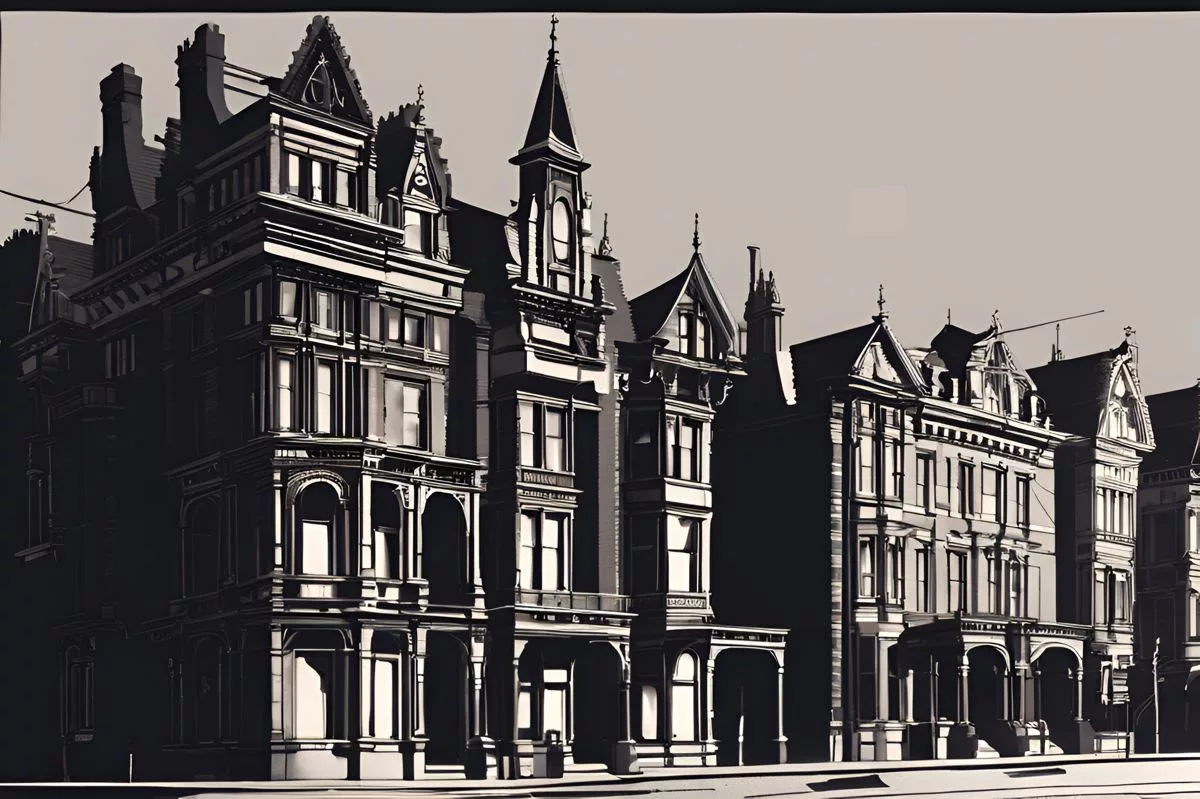In Cape Town, a fierce battle brews between Mark Lifman and Randolf Jorberg, two men caught in a web of power and fear. Jorberg, who once owned the lively Beerhouse, accuses Lifman of running a protection racket, shaking the city’s business scene. As Jorberg bravely speaks out, Lifman fights back in court, claiming defamation. This clash reveals the dark side of entrepreneurship in a city filled with beauty yet shadowed by crime, showcasing the struggle for truth and justice in a world where power often rules.
What is the conflict between Mark Lifman and Randolf Jorberg in Cape Town?
The conflict between Mark Lifman and Randolf Jorberg revolves around allegations of extortion and intimidation in Cape Town’s business community. Jorberg accused Lifman of orchestrating protection rackets, leading to a high-stakes legal battle. This situation highlights the challenges entrepreneurs face against organized crime.
The Brewing Storm: A City’s Underworld Exposed
Cape Town’s bustling streets, where history intertwines with modernity, set the stage for a real-life drama reminiscent of a noir film. Central to this unfolding saga are Mark Lifman, an alleged figure in the city’s underbelly, and Randolf Jorberg, the former owner of the iconic Beerhouse on Long Street. This clash, rooted in allegations and courtrooms, paints a broader picture of the obstacles entrepreneurs face in a city where beauty often conceals intricate societal challenges.
Nestled in the heart of Long Street, the Beerhouse was more than a culinary landmark; it was a melting pot where locals and tourists merged, experiencing Cape Town’s unique flavors and tales. For Jorberg, this establishment embodied a dream—an oasis of community and camaraderie amidst the clinking of glasses. Yet, beneath this successful façade, a darker struggle loomed, emblematic of an unsettling reality where business owners grappled with intimidation and extortion.
Jorberg’s outspoken revelations about the pressures on his establishment were not just grievances but an urgent call to recognize the pervasive grip of protection rackets. These criminal syndicates, demanding payments under the guise of security, were an open secret, casting a pall over the entrepreneurial landscape. When Jorberg publicly named Mark Lifman in an interview with Carte Blanche, accusing him of orchestrating such a racket, the stakes surged. His bold statement, “Mark Lifman must pay for his crimes,” was a declaration that refused to be ignored.
Legal Manoeuvres and High-Stakes Showdowns
Unsurprisingly, Jorberg’s allegations triggered a strong reaction from Lifman, who, through his attorney Michael Strauss, fired back with defamation claims. They argued that these accusations sullied Lifman’s reputation, painting him as guilty without due process—an assertion Lifman vehemently rejected. The legal battle intensified as Lifman sought and secured an ex parte order from the Western Cape High Court. This strategic move allowed him to target Jorberg’s assets without forewarning, effectively tightening the noose around Jorberg’s financial situation, especially as he resided abroad.
The ex parte order, known for its unilateral nature and often seen as draconian, underscored the high-stakes nature of this conflict. It placed Jorberg in a precarious spot, highlighting the power dynamics at play when wealth and influence intersect with the legal system. His Green Point property, now ensnared in this legal web, symbolized not just personal loss but also the fragility of those daring to challenge perceived injustices.
In the face of these daunting challenges, Jorberg remains undeterred. His response to Lifman’s legal offensive is one of resilience, not surrender. He has reached out to the public, appealing for pro bono legal support and contemplating crowdfunding to mount a robust defense. His determination to pursue a criminal case against Lifman speaks volumes about his resolve to confront what he sees as entrenched corruption, irrespective of the personal cost.
Echoes of Resistance in Cape Town’s Business Community
This saga, though centered on two individuals, echoes throughout Cape Town’s business community, where tales of extortion and defiance are quietly shared in boardrooms and bars. The intricate narrative reflects the broader historical context of organized crime’s impact on legitimate enterprises—a recurring theme in urban landscapes worldwide. Cape Town, with its rich history and cultural diversity, offers a unique stage where such tensions play out.
The city’s streets, adorned with Victorian architecture and modern skyscrapers, narrate stories of resilience and transformation. Art and activism often converge here, resonating with a community’s ongoing dialogue with its past and future. Movements like Dadaism and Surrealism in the art world challenged the status quo, much like Jorberg’s vocal criticisms challenge entrenched systems of control in the business sphere.
Cape Town’s artistic legacy, deeply rooted in resistance against apartheid and expressions of identity, finds parallels in Jorberg’s battle. His narrative, while intensely personal, mirrors the larger quest for justice and accountability in environments where power can easily obscure the truth.
A Dance of Truth and Power
As we delve into these intertwined stories, we find ourselves drawn into a narrative that is as much about individual bravery as it is about societal introspection. The interplay between Jorberg’s allegations and Lifman’s legal actions invites reflection on the nature of justice and the media’s role in shaping public opinion.
In Cape Town’s ever-evolving tale, where the boundary between reality and myth often blurs, figures like Jorberg and Lifman emerge as symbols—one of resistance, the other of the complexities surrounding reputation and redemption. Their conflict, set against the city’s vibrant backdrop, challenges us to question, engage, and ultimately comprehend the intricate dance between truth and power.
FAQ: Cape Town’s Noir: A Tale of Power and Resistance
What is the central conflict between Mark Lifman and Randolf Jorberg?
The central conflict revolves around allegations of extortion and intimidation in Cape Town’s business community. Randolf Jorberg accuses Mark Lifman of running a protection racket, which leads to a significant legal battle highlighting the challenges entrepreneurs face against organized crime.
Who is Randolf Jorberg and what is his connection to the Beerhouse?
Randolf Jorberg is the former owner of the iconic Beerhouse located on Long Street in Cape Town. The Beerhouse was a vibrant establishment where locals and tourists gathered, embodying Jorberg’s vision of community and camaraderie. His experiences at the Beerhouse have driven him to speak out against the pressures of intimidation and extortion affecting business owners in the city.
What legal actions has Mark Lifman taken against Randolf Jorberg?
Mark Lifman has responded to Jorberg’s allegations by filing defamation claims, asserting that the accusations have damaged his reputation. He secured an ex parte order from the Western Cape High Court, allowing him to target Jorberg’s assets without prior notice, intensifying the legal struggle between the two.
How has Randolf Jorberg reacted to Lifman’s legal maneuvers?
Randolf Jorberg has shown resilience in the face of Lifman’s legal actions. He is actively seeking pro bono legal support and considering crowdfunding to mount a defense. Jorberg remains determined to pursue a criminal case against Lifman, reflecting his commitment to confronting what he perceives as pervasive corruption.
What broader themes does this conflict highlight in Cape Town’s business community?
This conflict highlights themes of power, fear, and the struggle for justice within Cape Town’s business community. It sheds light on the pervasive issue of protection rackets and organized crime affecting legitimate enterprises, underscoring the need for resilience and collective action among business owners.
How does this narrative relate to Cape Town’s artistic and cultural legacy?
The narrative parallels Cape Town’s rich artistic legacy, rooted in resistance and expressions of identity. Just as historical movements like Dadaism and Surrealism challenged societal norms, Jorberg’s vocal criticism of entrenched systems reflects a broader quest for accountability and justice in a city where power can overshadow truth. This ongoing dialogue between art, activism, and entrepreneurship continues to shape the cultural landscape of Cape Town.











